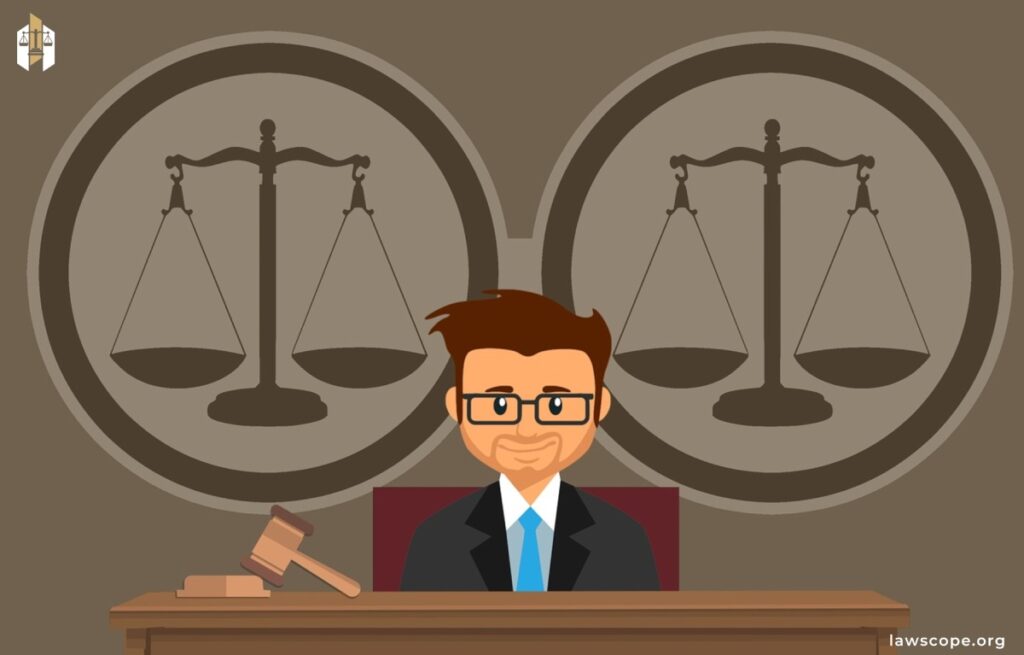
How long does it take to become a lawyer?
Becoming a lawyer is a noble pursuit that requires a clear understanding of the path ahead.
This comprehensive guide aims to provide aspiring legal professionals with detailed insights into the journey of becoming a lawyer, including the timeline, educational requirements, licensing processes, specialization options, and ongoing professional development.
By delving into these aspects, we hope to equip individuals with the knowledge they need to embark on this challenging yet rewarding career path.
How To Become A Lawyer?
Embarking on the journey to become a lawyer is a path paved with dedication and foresight.
If you’re contemplating a career in law, the first step is to explore the role of lawyers, evaluating whether it aligns with your talents and passions.
Below, we outline the essential steps on the path to becoming a lawyer.
Attain An Undergraduate Degree
Law schools typically mandate a bachelor’s degree for admission.
While your undergraduate major can vary, many law students opt for subjects like Political Science, Criminal Justice, English, or Sociology.
Some law schools might also specify prerequisite courses.
Strive to excel academically, maintain a high GPA, and actively engage in extracurricular activities to bolster your law school application.
Conquer The LSAT
The Law School Admissions Test (LSAT) is a pivotal component of your law school application. This standardized test assesses your potential success in a law program.
Preparing well in advance for the LSAT is crucial, as your scores, while not the sole factor, significantly impact your application’s strength.
Navigate Law School
To become a lawyer, most states require graduation from an accredited law program.
Full-time law students typically complete their studies in three years, although part-time options are available, albeit with a longer timeline.
Law school equips you with critical thinking skills, and deep legal knowledge, and introduces you to common lawyer scenarios.
Conquer the Bar Exam
Post-law school graduation, you must pass the bar exam and gain admission to your state’s bar association.
This examination assesses your readiness to practice law, encompassing months of rigorous preparation, a character evaluation, and a comprehensive background check.
How Long Does It Take To Become a Lawyer?
Becoming a lawyer usually involves many years of education along with several years of training, and the exact duration can be different on the basis of the country and the specific path you choose.
Here is a general overview of the steps and timeframes involved in becoming a lawyer in the United States.
Undergraduate Education (4 Years)
The journey to becoming a lawyer begins with a four-year bachelor’s degree program.
While law schools do not prescribe specific undergraduate majors, it is advisable to choose a field that aligns with your interests and strengths.
Common choices include political science, history, economics, philosophy, or even science and engineering for specialized areas of law like patent law.
Maintaining a high GPA is crucial, as law schools often consider undergraduate academic performance during the admissions process.
Law School (3 Years)
Law school is the academic core of legal education and typically spans three years.
During this time, students undergo an intense study of various legal subjects, including contracts, torts, criminal law, constitutional law, and more.
It is crucial to note that the curriculum in law school emphasizes more than just theoretical knowledge.
Students also develop critical skills such as legal research, writing, and analytical thinking.
To gain practical experience and apply legal theory, law schools offer opportunities like moot court competitions, mock trials, and legal clinics.
These experiences allow students to sharpen their advocacy skills and work on real cases, often under the guidance of experienced attorneys.
Bar Examination (Varies by Jurisdiction)
After successfully graduating from law school, aspiring lawyers must tackle the bar examination to obtain a license to practice law.
The bar exam is administered by individual states or jurisdictions, each with its own format and content.
Typically, it comprises two parts: the Multistate Bar Examination (MBE), a multiple-choice section covering general legal principles, and a state-specific essay portion that focuses on local laws.
Preparing for the bar exam is an arduous process, often taking several months of dedicated study.
Many law school graduates opt for bar review courses, which are intensive programs designed to enhance exam readiness.
Keep in mind that pass rates vary by jurisdiction, making it essential to thoroughly prepare for this challenging hurdle.
Postgraduate Practical Training (Varies)
Following successful bar exam completion, many new lawyers enter a period of practical training before they can practice law independently.
The nature and duration of this training differ by jurisdiction.
Some states mandate formal postgraduate practical training programs, while others have mentoring programs.
In contrast, some allow immediate entry into the profession.
Specialization (Varies)
While not mandatory, many lawyers choose to specialize in specific areas of law to build expertise and enhance career prospects.
Specialization involves delving deeper into areas like family law, criminal law, intellectual property, corporate law, or environmental law, among others.
Specialized knowledge can lead to more focused and lucrative legal practice.
Continuing Legal Education (Ongoing)
The legal profession is constantly evolving, with legislative changes, court rulings, and evolving legal practices.
Consequently, lawyers must engage in continuing legal education (CLE) to stay current with legal developments.
CLE requirements vary by jurisdiction but typically necessitate completing a certain number of hours of legal education courses every year or over a specific reporting period.
Professional Development and Networking (Ongoing)
Successful legal careers entail professional development and networking.
Lawyers often join bar associations, attend legal conferences, and participate in local and national legal organizations.
These opportunities not only facilitate networking but also provide insights into emerging legal trends and challenges.
Discover More: Car Accident Lawyer: Discover The Top Attorney For Your Case
In Brief
Becoming a lawyer is a challenging yet highly rewarding journey.
This comprehensive guide has shed light on the various stages involved in this process, from undergraduate education to law school, passing the bar exam, postgraduate training, specialization, continuing legal education, and professional development.
It’s essential to remember that the path to becoming a lawyer is not one-size-fits-all.
Each individual’s journey may vary depending on personal circumstances, goals, and the jurisdiction in which they intend to practice.
Some may opt for alternative legal careers, such as becoming paralegals, legal consultants, or legal educators, without pursuing full licensure.
May You Like Also: Top 10 Tricks Lawyers Use in Depositions: Expert Strategies For Success
To Conclude
In conclusion, the pursuit of a legal career offers not only personal and professional growth but also the opportunity to impact society positively by upholding justice and fairness.
Whether one chooses to advocate in court, advise corporate clients, or specialize in a niche area of law, the legal profession provides a dynamic and fulfilling path that can lead to a successful and meaningful career.
By understanding the comprehensive process outlined in this guide of “How long does it take to become a lawyer?”, aspiring lawyers are better equipped to navigate the challenges and opportunities that lie ahead.
You May Like Also:



5 thoughts on “How Long Does It Take To Become a Lawyer: A Comprehensive Guide”